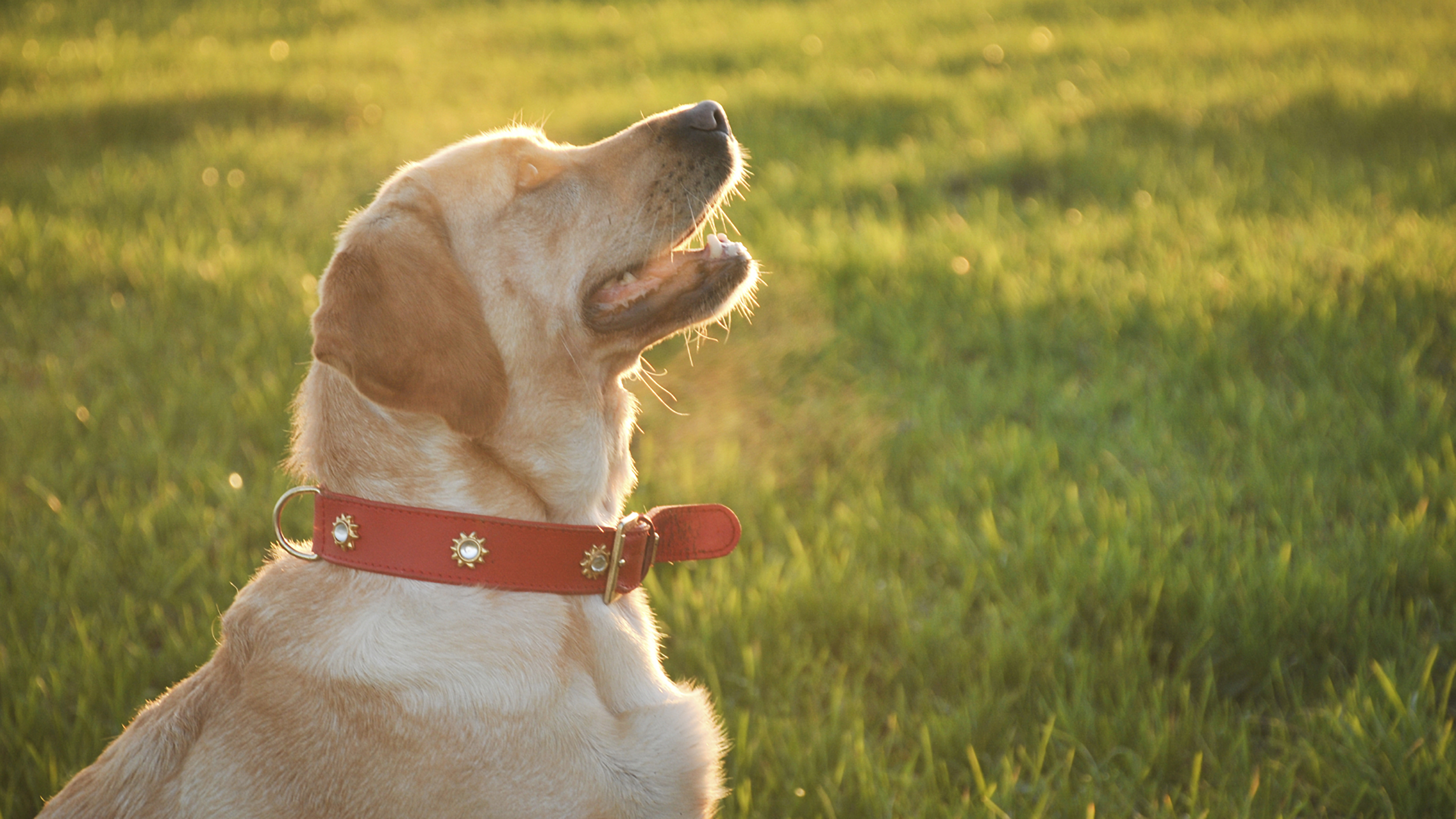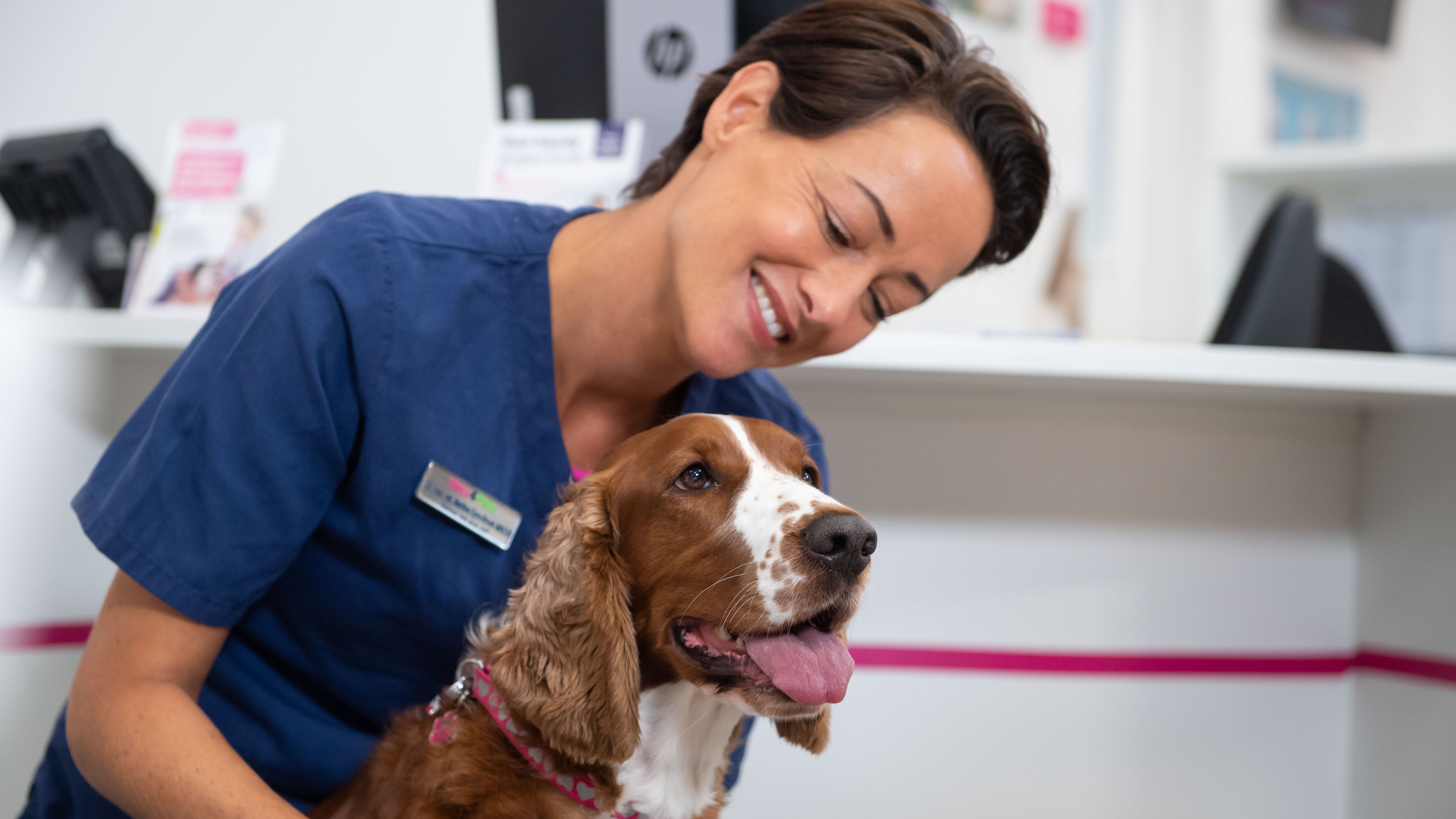
Dog Arthritis Advice & Care
Slowing up? Your dog might have osteoarthritis.
More about dog arthritis
Roughening and loss of the cartilage within a joint leads to arthritis. Healthy cartilage acts to smooth movement, and without it joints become stiff and inflamed.
Daily wear and tear leads to loss of cartilage, which is why arthritis is so common. Most dogs, if not all, will develop some amount of arthritis throughout their life.
Dogs are more likely to develop severe arthritis if:
- They are overweight
- They have suffered injury to a joint
- They have joint development problems such as dysplasia
- They do a lot of hard exercise
Often the first indication your dog is suffering from arthritis is that they seem to be slowing down. Don’t think of this as just a ‘normal’ old age change – just like us, arthritis affects movement because it is painful. It is important to see
Specific signs include:
- Difficulty climbing stairs
- An overall decrease in activity, especially play
- Resting more than usual
- Being slow to rise from lying down
- Slowing down on walks, or refusing walks
- Slow or stiff movements upon waking, after a rest, or in cold weather
- Reduced ability to jump up
- Reduced ability to bend joints
- Licking at a joint
Your vet may be able to diagnose your dog with arthritis after a full physical examination, and asking you questions about their behaviour at home.
They will bend and stretch your dog’s legs to see how much movement they have, and will watch the way they move.
If your vet needs more information, they may do an x-ray of your dog’s joints to assess them and look for arthritic changes. This helps rule out other problems too.
Book an appointmentLots of different treatments are used for osteoarthritis in dogs. This is because each case is different, and because using multiple treatments together often has a better outcome than using a single treatment alone.
Many of these involve changes you can make at home, with support from your Vets4Pets team.
Help at home
Using ramps to get into the car, restricting the times your dog needs to use stairs, and providing a thick comfortable sleeping spot are all ways you can make life easier for your arthritic dog at home.
Exercise
Exercise strengthens the muscles that support joints. Moderate amounts of low-impact exercise also improve mobility.
Exercise should be little and often, as too much exercise or high-impact exercise may cause your dog’s joints to become more painful.
Hydrotherapy is a good way to provide low-impact exercise for your arthritic dog in a safe and warm environment.
Weight control
All dogs with arthritis benefit from being a healthy weight.
Approximately half of all dogs are overweight or obese. For these dogs losing even 10% of their bodyweight can have visible results on their arthritis.
Vets4Pets clinics will be able to support you with dieting your dog, with weigh-ins and advice on food and exercise appropriate for your dog.
Some dogs with arthritis do not need any medication or supplements at all, and are simply managed with changes to diet, exercise and home routine.
In more painful cases, dogs may need extra help to be comfortable. These may be needed as soon as your dog is diagnosed with arthritis, or can be added in at a later stage as your dog’s arthritis worsens.
Cartrophen Injections
This joint-supportive injection is given weekly for four weeks and claims to help with cartilage production and protect against cartilage damage. This cannot be used at the same time as anti-inflammatory drugs. While reports of success are mixed, cartrophen is safe and is also anecdotally successful for some dogs.
Supplements for Arthritis
Lots of supplements are available for arthritis in dogs. These contain various ingredients, most commonly a source of glucosamine and chondroitin. While clinical evidence for supplements is mixed, they are very safe and anecdotally can be helpful in arthritis cases. Supplements claim to work by supporting joint health, and therefore have to be taken long-term.
Anti-inflammatory drugs
Anti-inflammatory drugs combat inflammation in the joints, relieving pain. These can be given long-term or in bursts as needed, but should never be given at a higher dose than recommended by your vet.
Several different types of anti-inflammatory drug are available, and your vet will recommend which is best for your dog. Some medications are liquid and others are tablets, so this may impact the most suitable choice for you and your dog.
We advise monitoring of kidney function when dogs are on these drugs long-term.
Lifestyle changes and medication are the most common treatments for arthritis, however there are other treatments available to consider that might be suitable for your dog.
Acupuncture
Often best in combination with conventional treatment, acupuncture is thought to stimulate the body’s repair mechanisms.
Acupuncture can only be done by an appropriately qualified veterinary professional.
PRP
PRP therapy involves using your dog’s own platelets to stimulate natural healing.
Health Plans to keep your dog healthy
At Vets4Pets we offer a range of Health Plans that make essential routine treatments more affordable. You'll save money on things like annual vaccinations, flea and worm treatment and routine health check-ups.

Dog Advice
Read more of our expert dog advice to keep your dog happy and healthy.
